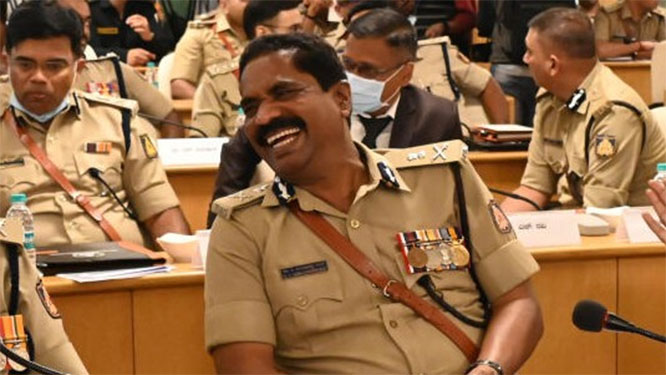Dubai, Nov 21: As many as 85,000 infants under the age of five may have died from starvation or disease since 2015 in war-ravaged Yemen, humanitarian organisation Save the Children said on Wednesday.
It said the estimate was based on data compiled by the United Nations, which has warned that up to 14 million people are at risk of famine in Yemen, where Saudi-backed forces are battling Iran-aligned Huthi rebels.
"For every child killed by bombs and bullets, dozens are starving to death and it's entirely preventable," said Tamer Kirolos, Save the Children's country director in Yemen.
"Children who die in this way suffer immensely as their vital organ functions slow down and eventually stop," he said.
"Their immune systems are so weak they are more prone to infections with some too frail to even cry. Parents are having to witness their children wasting away, unable to do anything about it."
Hodeida port, the entry point for some 80 percent of food imports and aid into Yemen, has been under blockade by the Saudi-led coalition backing the government since last year.
Save the Children said that it had been forced to bring supplies for the north of the country through the southern port of Aden, significantly slowing aid deliveries.
It also reported a "dramatic increase" in air strikes on the battleground city of Hodeida.
"In the past few weeks there have been hundreds of air strikes in and around Hodeida, endangering the lives of an estimated 150,000 children still trapped in the city. Save the Children is calling for an immediate end to the fighting so no more lives are lost," Kirolos said.
The plea comes as UN envoy Martin Griffiths prepares to hold talks with the rebels in the capital Sanaa during a visit aimed at laying the groundwork for peace talks in Sweden.
Under heavy Western pressure, the government and its Saudi-led military backers have largely suspended a five-month-old offensive on the Red Sea port city as UN envoy Martin Griffiths makes the biggest peace push in two years.
But a devastating all-out assault on the city's lifeline docks still threatens as coalition commanders scent a potentially game-changing victory in their three-and-a-half year war on the rebels.
UN agencies say up to 14 million Yemenis are at risk of starvation if the port of Hodeida is closed by fighting or damage.
The city is virtually the sole gateway to the capital and rebel-held territory in the densely populated highlands, and some 80 percent of commercial food imports and virtually all UN-supervised humanitarian aid pass through its docks.
Griffiths was due to fly into Sanaa for talks with rebel political leaders later on Wednesday as he attempts to revive a peace process that collapsed in acrimony in Switzerland in September when the rebels failed to show up.
The rebels have said repeatedly that they need stronger security guarantees from the international community that they will be given safe passage through the crippling air and sea blockade the coalition has enforced since March 2015.
The international community is demanding in return that the rebels halt all offensive operations, particularly missile attacks on neighbouring Saudi Arabia, and commit to joining talks on handing over of the port of Hodeida to UN control.
"Griffiths faces the sternest test of his young tenure," said Brussels-based think tank International Crisis Group.
"If his mediation efforts succeed in preventing a destructive battle for Hodeida, he could build momentum toward reviving a peace process that has been stalled for the past two years.
"But if he fails, peace in Yemen will look increasingly remote and the prospects for its embattled population increasingly dire."
Both sides have in the past week expressed support for the envoy and his mission to convene new peace talks in Sweden, but fierce clashes flared again in Hodeida late Tuesday.
Just hours before Griffiths' planned arrival in Sanaa, residents in the east of Hodeida told AFP by telephone they could hear fighting, and reported shrapnel falling in residential neighbourhoods.
On Monday, Britain presented to the UN Security Council a draft resolution urging an immediate truce in Hodeida and setting a two-week deadline for the warring sides to remove all barriers to humanitarian aid.
The proposed resolution would significantly ratchet up pressure on the Saudi-led coalition and the rebels to seek a negotiated settlement.
It also calls for a large injection of foreign cash to support Yemen's collapsing currency and for salaries of civil servants, teachers, and health workers to be paid within a month.
Multiple past attempts to hold negotiations have failed.
Griffiths said Monday he hoped the rivals would meet in Sweden "within the next few weeks". No date has been set.
The rebels overran Sanaa in late 2014, when they also took control of Hodeida and its port.
A year later, the coalition intervened as President Abedrabbo Mansour Hadi fled into Saudi exile.
Both parties in the conflict stand accused of acts that could amount to war crimes.
Although Western governments have condemned civilian deaths in Yemen, they remain political and military backers of Saudi Arabia, which is a regional ally and spends billions of dollars on arms from the United States, Britain, and France.
They have come under increased domestic political pressure to halt, or at least attach conditions to, their arms deliveries since the murder of dissident Saudi journalist Jamal Khashoggi in the kingdom's consulate in Istanbul last month by top agents Riyadh insists were acting without orders.
The World Health Organization says nearly 10,000 people -- mostly civilians -- have been killed in Yemen since the Saudi-led intervention began, but human rights groups believe the toll may be five times higher.
The World Food Programme says up to 14 million Yemenis are at risk of starvation.
Save the Children said on Wednesday that some 85,000 infants under the age of five may have died of severe malnutrition or related diseases between March 2015 and this October based on UN agency figures.








Comments
Add new comment